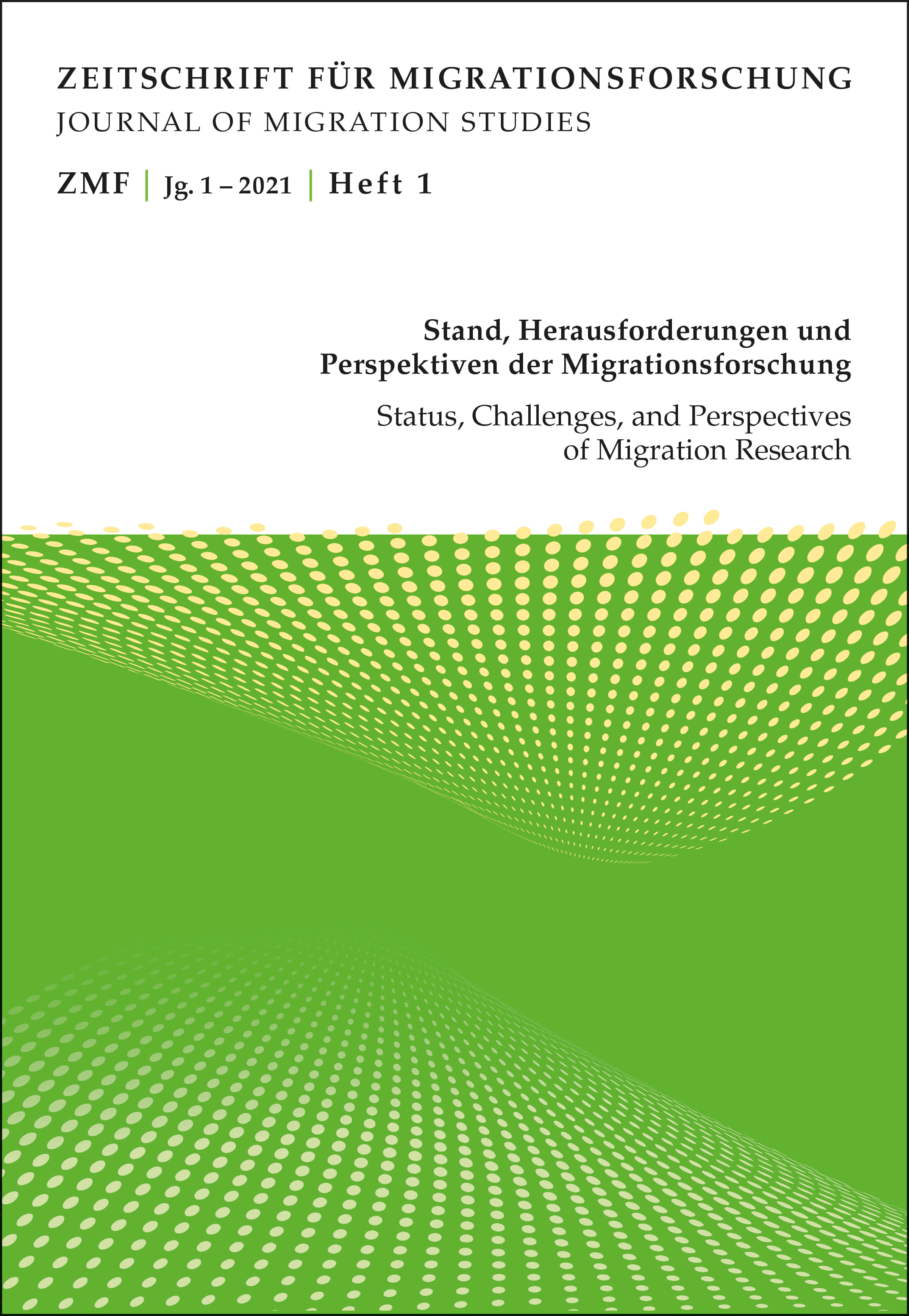Migrationssoziologie im 21. Jahrhundert: Aus der Randständigkeit in die Mitte der Disziplin
Hauptsächlicher Artikelinhalt
Abstract
Migrationsforschung hat sich im deutschsprachigen Raum qualitativ und quantitativ sehr stark entwickelt. Die Migrationssoziologie differenziert sich bezüglich behandelter Themenfelder und konzeptionell aus und kann einen bedeutsamen Beitrag zur Sozialtheorie generell leisten. Sie kann die im Zuge von Globalisierung bedeutsamer werdende internationale Arbeitsmobilität ebenso theoretisch und empirisch erfassen wie die migrationsbezogenen Zugehörigkeitsmechanismen und Bezeichnungspolitiken. Sie unterstützt die Überwindung klassischer Dualismen wie Sozial- und Systemintegration, freiwillige und erzwungene Migration, Nation und Ethnizität. Sie leistet schließlich einen Beitrag, jenseits des methodologischen Nationalismus Migration als genuinen Bestandteil menschlicher Lebenspraxis, als ergebnisoffenen, über mehrere Generationen fragilen und veränderbaren Prozess der Rekonstruktion von wechselseitigen Selbst- und Fremdzuordnungen und mehrdimensionalen Teilhabemustern zu untersuchen.
Migration Sociology in the 21st Century: From the Margins to the Center of the Discipline
Migration research increased in the German speaking area in qualitative and quantitative terms. Sociology of Migration differentiates according to thematic fields and conceptual approaches and contributes more and more to general social theory. In the globalization process, it can conceptualize transnational labor mobility as well as corresponding social mechanisms of belonging and categorizing. Migration Sociology helps to overcome classic dualisms like social and system integration, voluntary and forced migration or ethnicity and nation. Beyond methodological nationalism it facilitates to understand migration as a genuine part of human social practice, as an open-ended and for generations fragile and reversible process of reconstructing social attributions to oneself and others and of multi-dimensional participation in social entanglements.
